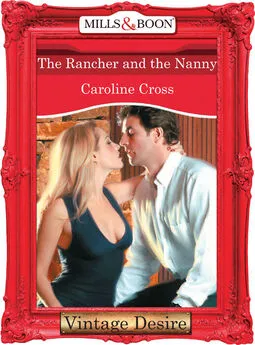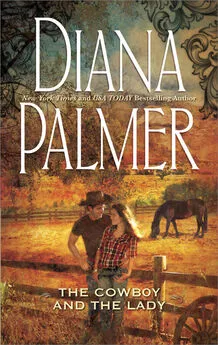John Creasey - The Toff and The Lady
- Название:The Toff and The Lady
- Автор:
- Жанр:
- Издательство:неизвестно
- Год:неизвестен
- ISBN:нет данных
- Рейтинг:
- Избранное:Добавить в избранное
-
Отзывы:
-
Ваша оценка:
John Creasey - The Toff and The Lady краткое содержание
The Toff and The Lady - читать онлайн бесплатно полную версию (весь текст целиком)
Интервал:
Закладка:
Then the Inspector bent his elbow and cracked it against the glass. The report as the glass broke was like a pistol shot.
The man would not have done that unless faced with an emergency. Slowly, Rollison moved towards the house, and the cabby and Cray went with him, one on either side.
“Must get upstairs,” Rollison muttered.
He thought the stairs would be too much for him, and he had to rest three times on the way up, but when he reached the landing he felt steadier. The butler had come behind them, and now he went ahead and led the way towards Hilda’s room. When they reached it the door was standing open and a police-constable was on duty outside. He stood aside for Rollison and Cray to enter, but refused admittance to the cabby, who called out that he would wait outside.
Cray stepped swiftly to the bed on which Hilda lay.
It was a magnificent room, magnificently furnished, but Rollison had eyes only for Hilda, who was on her back, her face a bluish grey, her eyes closed and her body motionless.
Rollison muttered:
“It’s probably adrenalin, injected. I know she’s had one dose.”
Cray opened his bag, took out his wallet and scribbled a few words on a card. He handed it to the policeman who had climbed the ladder, and said:
“Get this made up at the nearest chemist, and tell them it is urgent.”
“Right, sir.” The man hurried out, and Cray began to examine Hilda, who did not stir. Rollison sat on the arm of a chair, staring at the bed; the Inspector stood on the far side. A few moments later, Gwendoline came in. She stifled a scream, moved slowly to Rollison’s side, and stood watching. Renfrew did not appear.
Only then was Rollison again aware of pain in his right hand. Looking down, he saw that there was a cut, still bleeding slightly, on the fleshy part of the wrist.
There was a big bump at the back of Rollison’s head, which was tender when he touched it and which prevented him from wearing a hat; apart from that, and a piece of lint and sticking plaster on his hand, he did not feel much ill-effect from his fall. He sat back in the easy chair by his desk, with Jolly pouring out tea, and the Lady of Lost Memory staring at him anxiously.
It was twenty-four hours since his fall. In the interim, he had been in no state to talk or think, and his head still ached.
When he had left Barrington House, Dr. Cray had said that there was a fair chance of Hilda recovering. She had been moved to hospital, and Rollison was reasonably certain that she would be in no further danger. The footman, Farrow, had disappeared from Barrington House. Gwendoline and Renfrew had told their story to the police, who had been non-committal, but Rollison knew that a search was already being made for Farrow.
He had not yet heard Jolly’s story, nor heard from Grice. The friendly cabby had brought him to the flat. Policemen remained at Barrington House with Gwendoline and Renfrew.
“Are you sure that you won’t have a tot of whisky or brandy in the tea sir?” asked Jolly.
“No thanks,” said Rollison. I’m all right.”
“All right!” exclaimed the Lady of Lost Memory. “You look on the point of death!”
She was wearing a tweed suit, which Jolly had obtained from a theatrical costumier’s, was bare-headed and very lovely. It was not imagination that her eyes were filled with alarm. Rollison looked at her, and sipped his tea before he spoke.
“I’m not quite as bad as that. You lock delightful, and much better.”
“Oh, please!” she said. “Mr. Rollison, what happened? Was it to do with me?”
“Only indirectly,” said Rollison. “It’s a long and complicated story, and I don’t feel up to telling it just now.”
“I think you should go back to bed,” she declared.
“I think I will turn in for an hour or two. You won’t go out again, will you?”
“Not if you wish me to stay here.”
“I do.” Rollison stood up cautiously, went towards the doer, and then turned towards her. “One small thing—Mrs. Barrington-Ley is ill, I wonder if you would care to write a note of regret?”
“Of course,” she said. “Is she seriously ill?”
“I think she will soon be all right,” said Rollison. “Jolly will take the letter round.” He nodded and smiled, looking very woebegone, and then entered the bedroom. Jolly closed the door, and regarded Rollison with mild surprise.
“I don’t want her to go out again and I can’t shut her up in her own room,” said Rollison, “so field headquarters are moved into here. What happened at the nursing home?”
“I saw Miss Armitage through the window, sir, but she was most adamant in her refusal to speak to me, and consequently there was nothing I could do. The police were there very soon after me. Had the young woman been amenable I might have obtained useful information.”
“She was right enough,” said Rollison. “I like to think that she’s usually right. I hope Grice will soon turn up with the full story. You know what happened, I suppose?”
“I understand that the matron was murdered, sir.”
“Who told you that?”
“I waited until the Superintendent was there, and then managed to overhear a little of what was said,” said Jolly.
“I see. Well, plenty was doing at Barrington House. I got off lightly. Are you in a receptive mood?”
“I think so, sir.”
“Good! Then listen to me. Take Farrow the footman first,” said Rollison. “I have always thought him insolent, but I am not sure whether that’s the right word. He’s not a footman, and can’t hide it. He might be employed by Pomeroy. But on the other hand, someone sent me that photograph and so was sure of impending trouble; the same person might have employed Farrow to work and watch at the house.”
“You mean, perhaps, Mr. Barrington-Ley?” murmured Jolly.
“Yes.”
“Which would be a presumption of Mr. Barrington-Ley’s complete innocence.”
“I know,” said Rollison, “that’s what I want to presume. We’ll have to check on Farrow. Now, what of Dr. Renfrew?”
“I have made some further inquiries about him,” said Jolly. “He is in some financial difficulties. I do not know in what degree, but I hope to find out shortly.”
“If he’s desperately hard up, he might do odd things for money,” said Rollison. “Check that as soon as you can. And now . . .”
During the next quarter of an hour Rollison regaled Jolly with the salient points of the story, while he undressed, put on pyjamas and a dressing-gown and got into bed gratefully. Jolly arranged the pillows so that he had support for his neck without pressure on the tender spot of his cranium. Then he stood by the side of the bed.
“And so,” said Rollison, at last, “that’s the whole story. What do you make of it?”
“I am rather at a loss, sir, to understand your uncertainty about the footman,” said Jolly. “He certainly had every opportunity to inject the drug on two occasions—I assume that the second occasion was like the first, an injection of adrenalin?”
“It had the same effects, and Cray thinks so.”
“Then it is reasonably certain that it was administered by the same person, sir.”
“Yes. Adrenalin isn’t the easiest of drugs to obtain, you know.”
“No, sir, but unqualified persons have access to even more dangerous drugs than that—as you have often discovered.”
“The narcotics, yes. Adrenalin is a different matter. Why did Renfrew compromise his whole future by saying nothing about what he admits was an attempt at murder?”
“His explanation appears sufficient, sir,” said Jolly thoughtfully.
“Appears, yes. And it also would be a very good explanation if he actually gave the injection.” Rollison smiled at Jolly’s expression. “Suggestion not well received, Jolly?”
“Well, sir, with the utmost respect—would the man who first interested you in this matter and who arranged to send Madam here, take such a step?” asked Jolly.
“Meaning that the bump on my head is affecting my logic,” said Rollison. “Many things which Renfrew has done seem unlikely. Why did he get a friend to take her to his home—I mean our guest—and then send her here in a taxi? And why did he keep her away from here for several hours?”
“Is it so remarkable, sir?”
“At the moment, I think so,” said Rollison. “Renfrew was in a great hurry to get away after talking to me, but he returned remarkably quickly. The last thing I saw when I was hanging from the window was Renfrew coming into the room. Then someone stabbed me in the hand, with the unkind intention of making me break my neck.” When Jolly did not answer, Rollison went on: “The doubts about the villainy of Farrow the footman come in there. He wasn’t in that room. He had, apparently, fled the house before then. Renfrew was there with Miss Gwendoline, the butler, another footman, and the maid. Any one of them could have come to the window and used the knife, but it could not have been the footman.”
“I can follow you now, sir,” said Jolly obligingly. “But Dr. Renfrew”
“Is practically engaged to Miss Gwendoline,” said Rollison. “I would like to know a lot more about him. Background— real financial position, social reputation—all that kind of thing. Also, whether he possesses a Leica camera of the kind that can take excellent photographs through a waistcoat button-hole.”
“You mean that you doubt whether he did send the photograph?” said Jolly.
“I mean that I want to make sure,” said Rollison. “I put that statement into his mouth, and he accepted it after a noticeable pause. It might have been the result of being found out and being reluctant to admit it, but at this stage why should he be reluctant? What is more,” went on Rollison, warming up, “it might have been hesitation consequent upon getting an unexpected piece of information—hesitation while he made up his mind whether to turn it to his advantage or not. If Renfrew’s mixed up in this he would be smart enough. If he didn’t send me that photograph, he seized a unique opportunity to whitewash himself by agreeing that he did.”
“I suppose that is so, sir,” said Jolly, without enthusiasm.
“You still don’t like it?” said Rollison.
Jolly spent a few moments in profound reflection, and then said thoughtfully:
“I must admit that I see several difficulties, sir. For instance, would Miss Gwendoline be so easily deceived? You imply, sir, that Renfrew and Mr. Barrington-Ley were working in concert”
“Not Mr. Barrington-Ley.”
“Then I don’t quite understand you, sir.”
“It seems to me,” said Rollison, dreamily, “that someone is most anxious that we should believe that David Barrington-Ley is a scoundrel. So much points to him. The police will. I’ve no doubt, soon be working on that assumption, but—I know him fairly well. Jolly.”
“If you will forgive me for saying so, sir, you really allow personal liking to affect your judgment.”
“Not liking only, Jolly—my knowledge of the man. Two things are possible. One, that he had been blackmailed by Pomeroy, Shayle, and the others, and forced to behave in this uncharacteristic manner. Two, that he is doing it willingly. His wife and daughter lean towards the second, presumably. I lean towards the first. If we assume that I’m wrong, we must also assume that Barrington-Ley has been a party to all that has happened. Many things, some apparently contradictory, have happened, Jolly. First—and I think the incident which brought it all out into die open and was not, therefore, premeditated—the arrival of the strange visitor to the Bal Masque. Afterwards, there came what appeared to be an attempt to murder her, but because of what we have heard of Marcus Shayle’s instructions to Phyllis Armitage, that might have been simply an attempt to frighten her and encourage her to talk more freely. A nurse is a likely confidante, isn’t she?”
Читать дальшеИнтервал:
Закладка:










